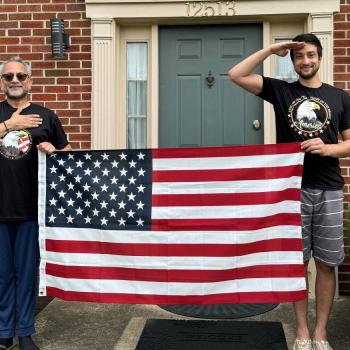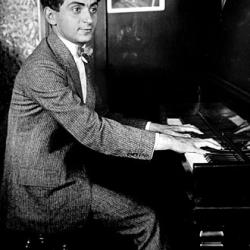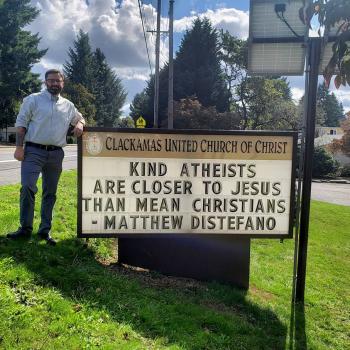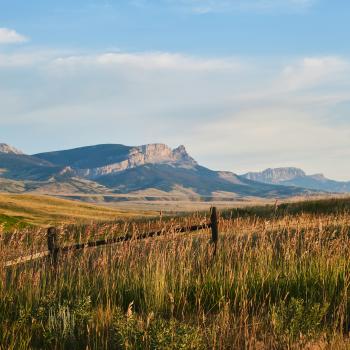As a member of an interfaith council, I am aware that other people of faith see themselves as chosen. I'm humbled by their spirituality and by the good work they do in the service of God. Is that any different from how I see myself as a Jew?
I believe that God is big enough to challenge each of us to live a chosen life. Jews are not alone as recipients of God's love. Did God choose Israel or did Israel choose God? I leave that question to the theologians. Has chosenness been used as an excuse for Jewish chauvinism? Unfortunately, it has. But that does not make it any less significant in defining how we see our place in the world. Chosenness is a challenge. It does not make me better, only different.
Rabbi Mark Greenspan
Oceanside Jewish Center
Oceanside, NY
Reform
In 1964, renowned Jewish philosopher Martin Buber said of chosenness, "In imitating God by being a holy nation, Israel must not withdraw from the world of the nations but rather radiate a positive influence on them through every aspect of Jewish living."
Through pursuing justice in all that we do, we come "closer to fulfilling the prophetic call to translate the words of Torah into the works of our hands." This is what it means to be chosen.
Rabbi Toby H.Manewith
Temple Micah
Washington, DC
Reconstructionist
Reconstructionist founder Mordecai Kaplan, who offered the first loving, internal critique of chosenness, rejected such popular nuances as "chosen to serve." Plainly, our tradition is problematic. Consider, for instance, the havdalah blessing, which links Jews to holiness, light, and Shabbat -- while associating "the nations" with the ordinary, weekdays, and darkness. Here's why we should not consider ourselves Am Nivchar, the Chosen People:
- Religious naturalists who see God more as a Process or Force than an interventionist Being, say that choosing isn't in God's nature. If God could choose, would S/He?
- The stories of Jacob and Joseph teach us not to privilege one child over others -- should not the Parent of Parents follow this advice?!
- Even if God had chosen us, it's both good practice and common sense to avoid touting the fact!
- Feminist theologian Judith Plaskow adds that the danger of external hierarchies like Jews-over-others implicitly justifies internal hierarchies like men-over-women.
- We condemned narrow Christian thought that replaced Israel with the Church, then celebrated when the Vatican changed that. We fear extremist tendencies within any faith (not just Islam), when one subset of humanity claims a "better" relationship with God. We of all people can, and should, model a more inclusive way.
So tradition needed reconstruction; our liturgy uniquely removes invidious comparisons between Jews and others. But if not chosenness, then what? Kaplan suggests "vocation," a special relationship by our own choice, rather than "election" by God -- being proud of our own identity and choices, period. Let's celebrate choosing, not being the Chosen People.
Rabbi Fred Scherlinder Dobb
Adat Shalom Reconstructionist Congregation Bethesda, MD
Independent
We never claimed to the world to be the chosen people; we claimed it to ourselves. It's not our fault that our personal diary was wrested from us and published all over the world.
Throughout the Tanakh we are reminded again and again that we are not the Chosen People, but a Chosen People. In the Book of Isaiah, we find: "In that day shall Israel be third alongside Egypt and Assyria, as a blessing on earth."
The philosopher Martin Buber places us in a context of nomadic seekers: "As a historical people, Israel enjoys no precedence over any other. Like Israel, the other peoples were all wanderers and settlers; they came ‘up' from a land of want and servitude into their present homeland. The one God, the Redeemer and Leader of the peoples, strode before all of them upon their way." It is not unlike a mother who writes six letters to her six children, and in each letter writes, "You are my favorite!"
Nevertheless, many of us wrongly consider ourselves the Chosen People. Because we had been persecuted for so long, our religious teachers impressed upon us how special we were to God, as oppressed people sorely need to hear that they are important, the highest of the high -- chosen. We are different from most, yes. But we are not more important to God.
Rabbi Gershon Winkler
The Walking Stick Foundation
Cuba, NM
Humanism
One of my favorite rabbinic stories describes how God had shopped around the Ten Commandments to various peoples only to be spurned by all. When he finally came to the Hebrews, God wasn't in the mood for rejection, and He made them an offer they couldn't refuse. He lifted Mount Sinai over their heads and said, essentially, either you take the law or I drop the mountain on you.




